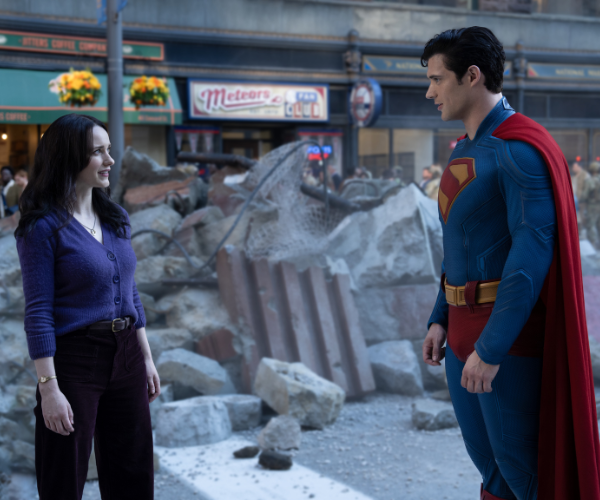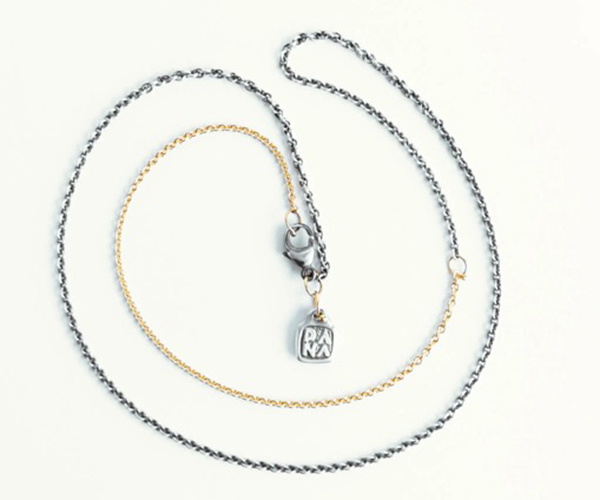He should be hanging out poolside at this quaint, white-shuttered North Carolina inn with his family and friends as they slather sunscreen and bemoan hangovers in the wake of his sister Abby’s wedding reception.
But instead of loafing on a chaise lounge, Bays is tearing apart his hotel room looking for the driver’s license he needs to board his flight in three hours.
His friends temporarily suspend their musings to shout advice.
“Can you get an assistant to break into your house and overnight your passport?” one offers.
“Did you look in your suit pants?” another asks.
Bays frowns. Of course he did. His mother, Martha, simply shakes her head. “He does this all the time,” she says.
Thirty minutes later, Bays, hair tousled like wild grass and wearing a rumpled Obama ’08 T-shirt, emerges from his room triumphantly. “Found it!” he says.
It was in his ... um, suit pants.
This whole license debacle spans 45 minutes. It’s the sort of meaningless anecdote that will inevitably be forgotten in a month’s time. Except, that is, if you’re Carter Bays.
Bays, a 33-year-old, quick-witted Shaker Heights native with smiling blue eyes and a constant devilish gleam, has built his hit television show around small, forgettable moments like this one.
“I only know how to write about myself,” he jokes.
Inevitably, then, this episode will not simply disappear into the vast recesses of time. Instead, Bays will likely write it into a future episode ofHow I Met Your Mother, the critically acclaimed half-hour CBS sitcom about the romantic lives of two twentysomething college graduates and their friends. Only in the episode, the scene will get twisted and expanded and distorted to the point where it only slightly resembles the original anecdote — like a high school classmate who’s undergone thousands of dollars worth of plastic surgery. The new episode will be funnier and more convoluted. And in the end, Ted Mosby, the show’s main character, will come off looking a little more responsible and less absent-minded.
That’s because the character of Ted Mosby, the sensitive, romantic, Indians-loving architect at the center ofHow I Met Your Mother, is based on Carter Bays, the real-life sensitive, romantic, Indians-loving playwright.
The writing duo focused on 1997, a time when the two were recent Wesleyan University graduates, and Thomas was living with his college sweetheart, Rebecca. Bays, unattached, spent long hours at their apartment moaning about his partnerless status.
“I really wanted to get married,” Bays says. “And as a single guy in New York, I felt that was not the normal experience.”
Hanging out in the city together, Bays and Thomas experienced lots of funny, awkward and sometimes painful moments — like the time when Bays had invited a date to a friend’s wedding, only to realize a day before the event that the invitation had not come with a plus-one. (“It was horrible,” says Bays. “My date had already bought a new dress and everything.”) Or when Thomas’ girlfriend decided that she hadn’t dated enough men and broke up with Thomas for a short, miserable spell. Carter, like any loyal best friend, told Craig (untruthfully, he insists) that Rebecca was a “bitch” (and then had to deal with the consequences when Craig and Rebecca got back together).
“I remember thinking at the time that this would make good sitcom material,” Bays says.
When it came time to pitch specific ideas, the two tossed around many scenarios, including a sitcom about an accountant for an Enron-like company who’s forced to teach at an inner-city school to make up for his transgressions. But their thoughts kept returning to their time together in New York.
“We thought it was an angle that hadn’t been explored before,” Bays says. They also thought such a show would resonate well with members of the 18-to-34 demographic who’d grown up watchingFriends andSeinfeld. And sinceHow I Met Your Mother’s characters were based on themselves, Bays and Thomas had seemingly endless material with which to work.
The one worry, however, was whether other people — namely 20th Century Fox executives — would find Bays and Thomas as interesting (and funny) as they found themselves.
It was kind of a gutsy move.
But then Bays, much like Ted Mosby, has always been sort of gutsy — and sort of lucky.
Bays’ parents — Martha, a librarian, and Jim, an attorney —had little doubt their son would enter a creative field. Once, in elementary school, 7-year-old Carter gave Martha a poem for Mother’s Day. Martha looked amazingly at the sophisticated rhyme scheme and asked Carter how he’d written it. The little boy gazed wondrously at his hands and said: “It just came out that way, Mommy.”
But Bays didn’t want to be a writer; he wanted to be a rock star. At various times throughout his childhood, Carter took up, and then quit, piano, guitar and singing lessons. He spent long hours in his Shaker Heights basement mixing melodramatic, alternative-style songs about torn hearts and bleeding souls.
“Carter was always attracted to the creative side of life,” Martha says about that time. Sister Abby has a less diplomatic view of her older brother then: “Carter was an artsy-fartsy asshole,” she says, smiling.
While a student at Shaker Heights High School, Bays discovered another (less ear-screeching) outlet for his creativity: playwriting. As a homework assignment one day, his teacher made everyone write a script. Bays’ play was calledBeaver Goes Nuts. In the story, the mild-mannered young son fromLeave it to Beaver grows up to be a juvenile delinquent who burns his school down. If a teacher were to read this today, Bays would probably be sent straight to the school psychiatrist. But back in 1991, Bays’ teacher saw the play for what it was: a strange, dark, funny piece. She encouraged him to keep writing. And he did, penning pieces that were eventually performed at the Cleveland Play House and the Dobama Theatre.
If the successes had stopped there, Bays would have considered himself both lucky and blessed. Then during his senior year, the young writer sent in a collection of his plays to the Young Playwrights Festival, a competition started by Stephen Sondheim in 1981 to encourage young writers. Winners of the competition have their plays performed and directed by New York theater professionals.
Bays’ submission was a play calledFive Visits from Mr. Whitcomb about a hapless young innocent named Tom who lives by himself in a remote cabin. In the play, he amasses a grand fortune of 10 cents in one year’s time and is incessantly hounded by an IRS agent who wants to take his share for tax purposes. The script is very dark, very funny and very Bays.
In the spring of 1993, as Bays was preparing for high school graduation, he got a phone call from New York. The festival board lovedWhitcomb and had a question: How did Bays feel about moving east for the summer?
The festival organizers put Bays up in a small walk-up apartment in Chelsea. Every morning on the way to rehearsal, Bays would wander through Hell’s Kitchen trying to avoid stepping on sleeping homeless men’s fingers as he puffed proudly on his Marlboro Reds. The cast ofWhitcomb included a slew of up-and-comers such as actress Camryn Manheim (who later starred inThe Practice) and director Michael Mayer (who went on to win a Tony Award for the Broadway showSpring Awakening.) For 10 or so hours each day, the cast would slave and sweat together over Bays’ script, trying to draw more depth and meaning from the words. During breaks, everyone would head out to the fire escape, frantically grasping their cigarette packs. “Smoking was a big part of the experience,” Bays says, smiling.
The connections Bays made that summer would ultimately help him secure a writing position on CBS’sLate Show with David Letterman. But in the interim, it put him in an odd position with his peers. The play didn’t premiere until the fall, and classes at Wesleyan University began in late summer. Bays spent his first few weeks of college shuttling between midtown Manhattan and Middletown, Conn. His future classmates were both impressed and jealous.
“My first impression when I saw Carter was, ‘Oh my God, he’s the dude who had his stuff produced off Broadway,’ ” says Thomas. “That was intimidating.”
But there was still that whole rock-star dream. Back at Wesleyan, Bays joined a nine-piece, all-male soul band called the Testostertones. “None of us liked the name, but we couldn’t come up with anything better,” Bays says. The band might not have been a great way to meet girls, but it solidified his friendship with Thomas.
At the time, Bays was the lead singer of the group, and Thomas played the drums. Though the duo was separated by a horns section on stage, they quickly grew close.
“We liked the same things, we found the same stuff funny, and we had similar music tastes,” Thomas says. “We pretty much agreed on everything,” Bays adds. Their mutual admirationled them to separate from the group and form their own two-man band, The Solids.
Over the next few years, Bays, Thomas and his girlfriend, Rebecca, became a “weird little family unit,” Thomas says. After college, the three decided to move to New York City together.
Thomas and Bays got jobs with theLate Show with David Letterman. But after four years, they grew tired of writing funny lines for other people. They wanted to be funny themselves. So Bays, Thomas and Rebecca all relocated to Los Angeles.
The duo found gigs writing for sitcoms such asAmerican Dad, Oliver Beene andQuintuplets. However, neither felt completely happy in Los Angeles. Writing for these sitcoms was like eating diet food: It sort of tasted right, but it didn’t leave them satiated. “The shows had no heart,” Thomas explains. “It was all joke, joke, joke with no substance.”
Which is how they felt about their whole California existence. They yearned for authenticity. “Every time I went to Cleveland, I’d wonder why I left,” Bays says.
But things were about to get a bit more real than either of them expected.
In spring of 2004, with Martha cancer and chemo-free, mother and son headed to St. Petersburg, Russia. Over coffee one morning, the two started mulling over their lives. Martha, divorced by then, talked about her wish to find more meaningful life work. Bays in turn confessed how frustrated he was writing for shows that he didn’t like. In her practical way, Martha told Carter, “Well, if you don’t like those shows, stop writing them and write something good.”
“But what should I write about?” he asked,
Martha shrugged. “I don’t know. But the best shows are the ones from the heart.”
A few months later, Martha entered the seminary and Fox executives boughtHow I Met Your Mother from Thomas and Bays.
In Hollywood, the first step after getting a show approved is to begin casting. Bays insists he didn’t give much thought to the person who would play himself on the show. But Josh Radnor, the actor who was eventually chosen, was a pretty close match. Like Bays, Radnor is a native Ohioan (he grew up in Bexley). And, also like Bays, Radnor comes from a warm, close-knit family with an attorney father. When he got the part, Radnor was super excited to learn that his character would wear “lots of Buckeye T-shirts,” Bays says.
Bays, for his part, learned a lot about himself watching Radnor in the role of Ted. He picked up on things “I didn’t notice about myself,” he says (things like absent-mindedness, a quality Bays still insists he doesn’t possess, despite all evidence to the contrary. Once, while traveling to Colorado, he made it all the way to the airport gate before realizing he’d forgotten his luggage at home.)
But Radnor also tapped into elements of Ted that weren’t inherently Carter-ish. And Bays had to learn how to let go of his close-fisted control of Ted and let the character develop into someone else. “You kind of understand how a parent feels,” he says. The person that resulted was someone perhaps looser and a little crazier than Carter Bays.
Bays and Thomas got lucky with their other cast selections, including Alyson Hannigan (American Pie), Neil Patrick Harris (Doogie Howser, M.D.) and Jason Segel (Freaks and Geeks). And though many casts change when a network picks up a show, the cast ofHow I Met Your Mother has remained the same throughout. As a result, the crew grew close, supporting each other through everything from break-ups to weddings. At times, they can seem like a junior high posse.
“We were all roughly the same age, 29, when the show was picked up,” Thomas explains.
How close are they? Thomas says none of the cast members blinked when Segel disrobed multiple times in the 2008 movieForgetting Sarah Marshall.
“When we have costume changes, [Jason] doesn’t bother to go to the dressing room,” Thomas says. “He says he was born without the shame gene.”
WhenHow I Met Your Motherpremiered Sept. 19, 2005, it was almost universally loved by critics. Reviewers particularly enjoyed the authenticity of the characters. And once again, luck was on Bays’ side. Unlike other sitcom creators who sweat and drink their way through the first season, hoping and praying the show will be renewed, Bays and Thomas learned early on that CBS had picked up the sitcom for a second season. Being picked up for subsequent seasons, however, hasn’t been as effortless.
Rumors abounded last year that the show was about to be canceled. Though it was getting great reviews, it did not snare the number of viewers the network wanted. Irate fans circulated petitions and sent protest letters to CBS executives.
In what some saw as a Hail Mary move, Bays and Thomas brought in Britney Spears as a guest star. She played a sex-craved secretary named Abby. (Carter’s actual sister, Abby, “was not pleased with that name choice,” Bays admits. “Perhaps I should have fought harder against it.”) Bays recalls the filming of that episode as a total media circus.
“People were checking into the InterContinental across the street to get pictures of her,” he says. “I, however, decided not to talk to her in order to make myself stand out.”
The casting move garnered headlines, and CBS renewed the show. AsHow I Met Your Mothernow winds through its fourth season, viewers still spend hours online, trying to ascertain who the mother of Ted Mosby’s future children — who appear briefly at the beginning of each episode — and of the show’s title will be.
Thomas and Bays won’t gives any clues, other than to say they’ve known from Day One how the show will end. Viewers, hoping to divine clues from Bays’ own life, will find themselves out of luck.



